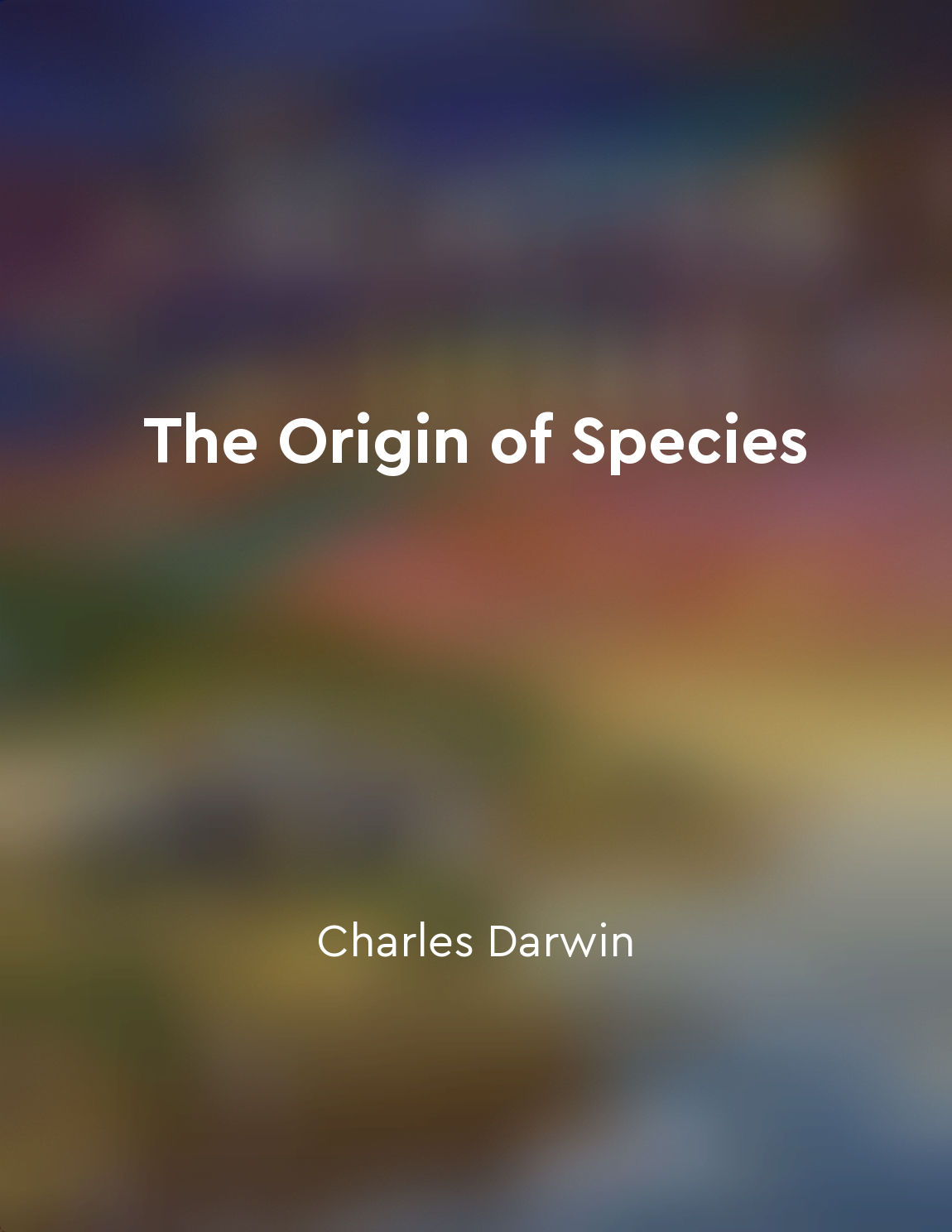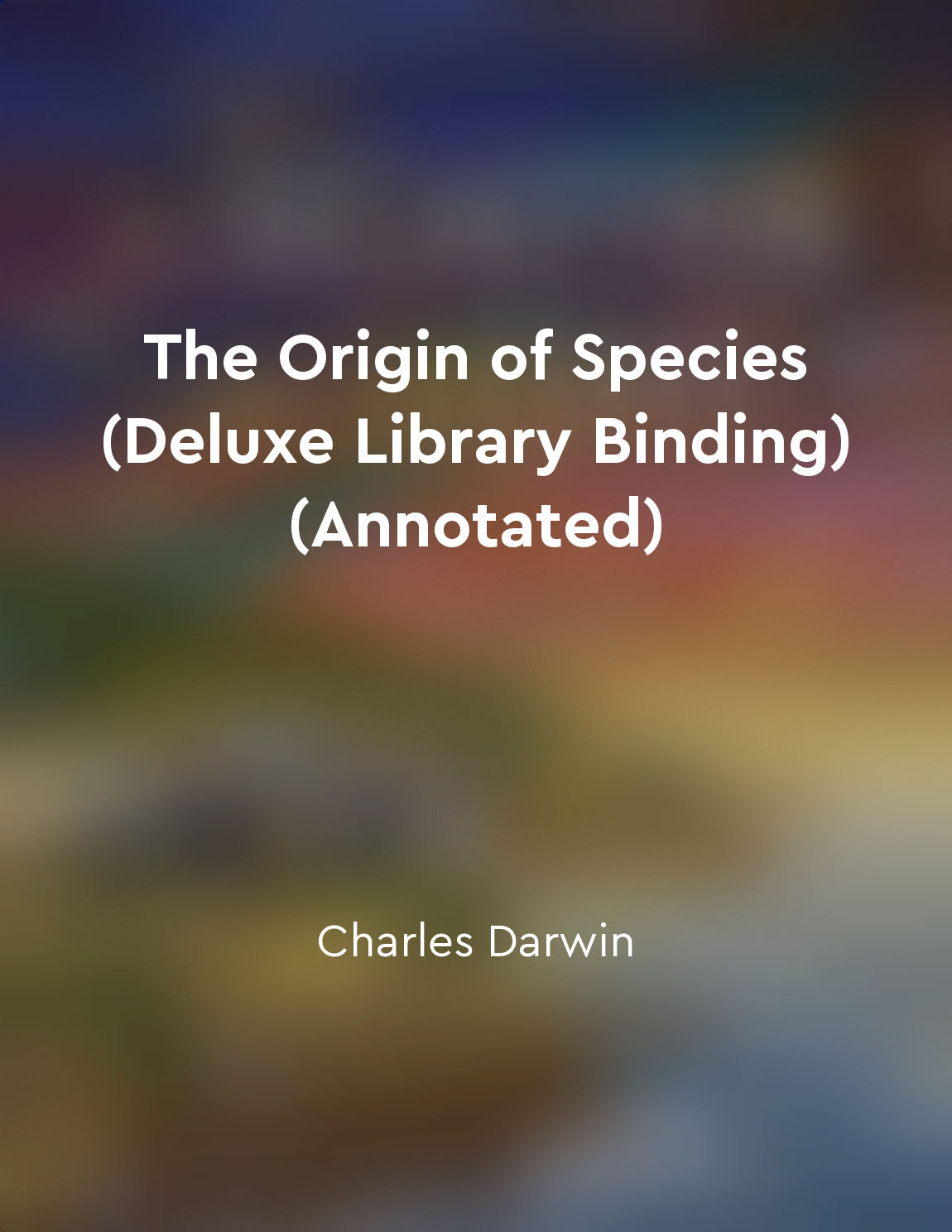Environmental pressures shape evolution from "summary" of The Origin of Species (Deluxe Library Binding) (Annotated) by Charles Darwin
In the natural world, the struggle for existence is a constant and unforgiving force that drives the process of evolution. Organisms must adapt to their environment in order to survive and reproduce, passing on their advantageous traits to future generations. This process of adaptation is shaped by the environmental pressures that act upon a species over time. Environmental pressures can take many forms, from changes in climate to competition for resources. These pressures create selective pressures that favor certain traits over others. For example, in an environment with limited food sources, individuals with traits that allow them to better access or utilize those resources will have a higher likelihood of surviving and reproducing. Over generations, these advantageous traits become more common in a population, leading to the gradual evolution of the species. This process, known as natural selection, is the driving force behind the diversity of life on Earth. It is through this process that species are able to adapt to their environments and thrive in even the most challenging conditions. Darwin's theory of evolution by natural selection revolutionized our understanding of the natural world, providing a unifying explanation for the diversity of life. By emphasizing the role of environmental pressures in shaping the evolution of species, Darwin highlighted the intricate relationship between organisms and their surroundings. This concept of adaptation to the environment remains a fundamental principle in the study of biology and continues to shape our understanding of the natural world.Similar Posts

Adaptations reflect the functional fit between organisms and their environments
The relationship between organisms and their environments is a key aspect of the study of adaptation. It is through this relati...
Males and females have different evolutionary pressures
In the game of evolutionary life, males and females play by different rules. This is not a matter of preference, but of necessi...
The balance between cooperation and competition is essential for evolutionary success
The intricate dance of cooperation and competition is at the heart of evolutionary success. Organisms must work together toward...

Geographic isolation leads to speciation
Darwin proposed that when a population becomes geographically isolated, it can lead to the formation of new species over time. ...
Intrasexual competition can lead to the evolution of exaggerated traits
In the wild, competition between members of the same sex for access to the opposite sex is intense and unrelenting. This intras...
Phylogenetics traces evolutionary relationships
Phylogenetics is a field of study that seeks to unravel the complex evolutionary relationships among organisms. By examining th...

Species arise through natural selection
The process by which new species arise is a result of the natural selection of individuals that are best adapted to their envir...

